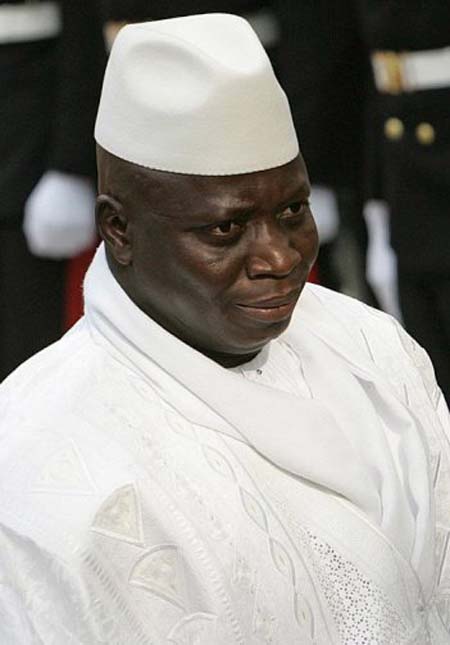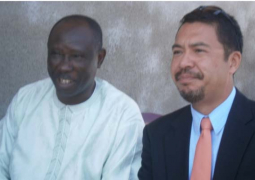
It would be recalled that the Gambia government Tuesday announced that it is “ready to mediate in consolidating the terms of the ceasefire or in any future negotiation between the parties”, referring to the ongoing war between Israel and the Palestinian group Hamas.
In the statement, the government expressed its “great concern” about the deaths and destruction of property, and further stated that it “welcomed the truce brokered by Egypt”, and called on “the parties to fully adhere to the terms of the truce”… in order to give the “peace process” a chance.
“As a neutral party, The Gambia stands ready to mediate in consolidating the terms of the ceasefire or in any future negotiation between the parties”, the statement added.
Citing the latest news in this evolving situation, observers referred to a report by one Adam Chandler, which said “following Hamas’ rejection of a ceasefire proposal by Egypt, the group may have announced its own terms for a 10-year truce, replete with conditions that Israel will never be willing to meet”. The report carried by Yahoo News on Wednesday went on as follows:
Early reports are signaling that Hamas, along with the Gaza group Islamic Jihad, are proposing a cessation of hostilities in exchange for the release of Palestinian prisoners who were initially released in the prisoner exchange that freed kidnapped Israeli soldier Gilad Shalit in 2011.
A number of the men were rearrested during Israel’s operation to find the men who abducted and killed three Israeli teenagers in the West Bank last month.
The Times of Israel reports some of the other demands:
[Hamas also] demands that all crossings to the Gaza Strip be opened, and that the Rafah crossing to Egypt be secured by UN forces. It calls for an airport to be established in the Strip, that fishing areas be expanded, and that Israeli aircraft alter their flight routes such that none fly over the coastal enclave.
The Israeli site Arutz Sheva adds:
There is no official confirmation of the offer and it is being greeted with skepticism, as more of a trial balloon than an actual offer.
It seems fair to say that few of these demands will be taken seriously by Israel. Let’s have a look at them.
Context
As we noted yesterday, Hamas dismissed Egypt’s ceasefire proposal out of hand, reportedly in objection to having been left out of the negotiations. The more likely reason though is that the Egyptian proposal contained no incentives that would allow the terrorist group to declare some kind of public relations victory for its battle with Israel.
Release of Palestinian prisoners
So long as the killers of the three teenage Israelis are on the loose, it seems highly unlikely that Israeli Prime Minister Benjamin Netanyahu will be politically able or personally willing to make this concession.
But this does broach an interesting possibility. Were Hamas or the Palestinian Authority to find and/or turn in the men responsible, it would change all the political calculations here. Don’t count on it.
UN observers at border crossings
The United Nations doesn’t have a sterling reputation when it comes to enforcing conditions of a ceasefire. Following the end of Israel’s 2006 war with Hezbollah (which has many parallels to the Gaza conflicts of the past few years), the UN set up a force called UNIFIL (United Nations Interim Force in Lebanon), which was meant to enforce the ceasefire and keep Hezbollah from rearming. According to Israel and some press reports, Hezbollah’s stockpiling of rockets from Iran resumed almost immediately.
Hoping to move things along, France is reportedly proposing that EU observers man the border crossings between Israel and Gaza. Does the EU have more credibility than the UN? Probably.
Easing the blockade of Gaza
The other demands set forth by Hamas and Islamic Jihad speak to Israel’s much-maligned blockade of Gaza, which is meant to keep the groups from rearming. The blockade also makes the importing of material goods for building a Palestinian economy extremely difficult.
Previous ceasefires have included provisions that would limit the scope of Israel’s blockade, however, given the number of rockets fired into Israel from Gaza (particularly in the direction of population centers like Tel Aviv) as well as the number of rockets reportedly destroyed by Israeli airstrikes, the easing of the blockade against Gaza seems like a nonstarter...for now.
With enough international pressure (which doesn’t seem to be coming quite as forcefully as it has in conflicts past), this may change.
What’s next?
On Tuesday, the Israeli cabinet approved the (Hamas-rejected) Egyptian ceasefire and held back on striking Gaza for six hours. One Israeli was reportedly killed as Hamas continued firing rockets.
Following the end of the Israeli pause, Israeli Prime Minister Benjamin Netanyahu vowed to strike with even greater intensity. On the domestic front, he is facing pressure from some politicians on the right to order a ground invasion of Gaza.
With the 2009 conflict between Israel and Hamas in mind, the international community is working hard to make sure what would be a destructive and deadly ground invasion stays in the hypothetical. (Egypt is said to be mediating another truce.)
Meanwhile, until a palatable proposal emerges or an external factor forces the hand of one of the sides, the violence will continue. In the ninth of fighting, the Palestinian death toll passed 200 and rockets continue to rain down on Israeli cities.


